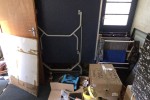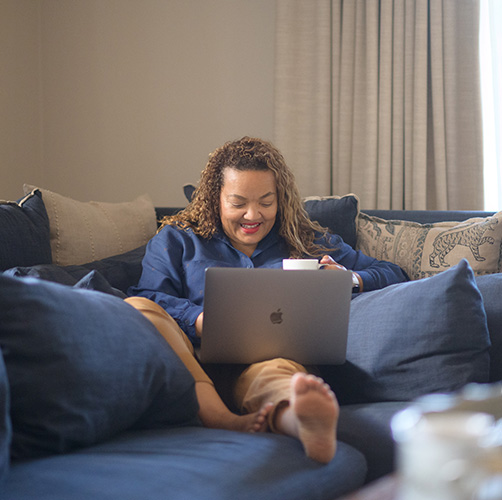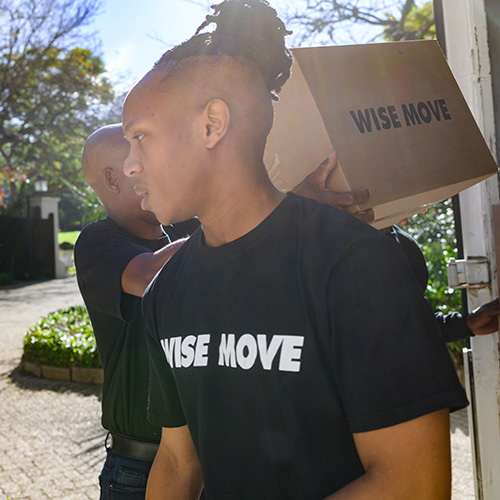
The global real estate market for first-time homebuyers is considered competitive. This insight is also true in the South African market today.
Many first-time South African homebuyers found the motivation to buy during the COVID-19 lockdown, fueled by low-interest rates and a desire to escape the urban centres. And while this drive and enthusiasm have somewhat diminished over recent months, there are still those who want to make homeownership a reality.
We asked our network of real estate experts to give us insider info on everything from getting advice when it matters most, to boosting your credit score and securing home loans.
So if you’re currently navigating South Africa's housing market as a first-time home buyer, you’re in the right place.
Getting Advice You Can Trust
Acquiring a home is a significant milestone for anyone. The process can be complex, and it is essential to have a clear understanding of what to expect.
According to Skoko Sebole, Principal at Leapfrog Midrand, working with first-time home buyers is exciting, because of the impact the advice of a seasoned real estate agent can make.
"Guiding someone through the process of purchasing their first property is one of the most exciting things for property advisors. And when done right, giving the right advice can be the most valuable thing for first-time buyers."
It is important to work with a trusted advisor to navigate the buying process. But, what is it that you should consider when navigating the South African housing market as a first-time home buyer?
What to Consider Before Putting Pen to Paper
Buying a home is like a juggling act where you must focus on what you want if you don’t want it all to come tumbling down.
“Being properly researched and sure of the commitment you are about to make is the best way to ensure that you don’t experience buyer’s remorse after you have signed your offer to purchase,” explains Greg Mazen, Head of Legal at TPN Credit Bureau.
Here are some elements Mazen suggests you need to consider when purchasing your first home.
1) Investigate the Area
When it comes time to decide where you want to start your new life, the best first step is to investigate whether the surrounding area offers the following:
-
- Excellent schools nearby
- Employment opportunities close by, or is there infrastructure to support a remote career [fibre/internet connection]
- A variety of amenities
- Whether the infrastructure is good [especially the roads]
- And if there is public transport
All property purchases should be seen as long-term investments. As the buyer, you need to find out if there’s a future for the area. Is it an up-and-coming area with exciting prospects for your entire family?
“While it’s endearing to see when somebody falls in love with a property at first sight, it’s less endearing to see how disappointed they are with certain facets of the property after signing the offer to purchase,” added Sebola.
2) Affordability
When reviewing a property and gauging whether or not you can budget to afford the repayments, remember it’s more than just the asking price.
Affordability is always important when buying a home. While you need to know what you can afford to pay monthly on a bond, you must also be prepared for the upfront costs of buying a home.
These include:
-
- transfer duty
- transfer costs (lawyer’s fees)
- bond registration costs
- and other expenses
Once you are a proud homeowner, you will also have to pay utility costs, regular repairs, upgrades, and general maintenance around the property.
“It’s always advisable to obtain pre-approval from a bond originator so that you have a clear idea of what you can afford. Pre-approval also improves your chances of securing a bond,” says Carl Coetzee, CEO of BetterBond.
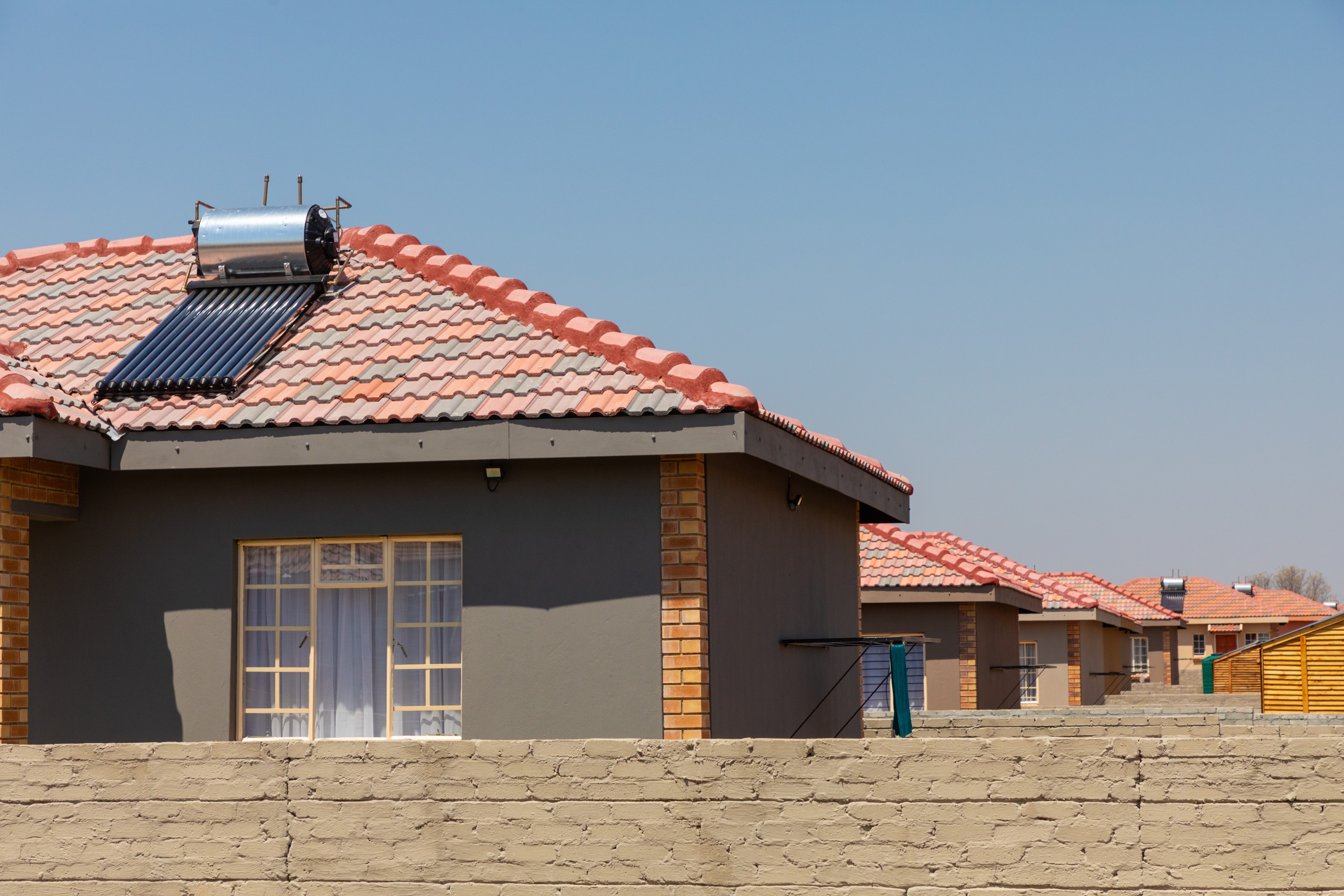 It’s not as unusual as you may think for new homebuyers to forget about the additional costs. Sebola elaborates,
It’s not as unusual as you may think for new homebuyers to forget about the additional costs. Sebola elaborates,
“It’s not uncommon to be contacted by clients who bought a property on the assumption that the bond repayment would be the only cost involved. It is highly recommended to get pre-approval for affordability on a bond as this puts the buyer in a better negotiating position.”
Another factor to consider with affordability is to keep the property price below the R1 million threshold. After all, there are no transfer duties payable for homes/properties below R1 million.
When given the option of purchasing an older building, instead, steer clear as a first-time buyer. By buying a home that’s been recently built in a new development, you’ll be able to cut out transfer duty costs, but you will still need to pay a conveyancing attorney.
Another bonus of buying new is that you can save on repairs and maintenance for the first few years, especially if you’re entitled to workmanship warranties.
If you struggle to make up the required funds, first-time buyers with a monthly income of between R3 501 and R22 000 may qualify for a Finance Linked Individual Subsidy (FLISP), if they meet all the requirements.
According to Coetzee, “It’s now possible to obtain the subsidy without having been granted a bond, which makes it even easier for qualifying applicants to own a home. And they can use other sources of finance, such as an unsecured loan or employer-assisted housing scheme, to buy their home.”
Those who aren’t keen to explore these avenues, because they work remotely and are self-employed can try to improve their credit score.
According to Waldo Marcus, Head of Marketing at TPN Credit Bureau,
“ For most first-time homeowners, a good credit score is the key to homeownership. But it can take time to build a positive credit record.”
If you have time on your side, Marcus suggests exploring a new avenue that is often overlooked: rental payments,
“... rental payments can contribute to building or improving your credit score in South Africa. TPN Credit Bureau records rental payment profile information so that every rental payment made on time positively impacts your credit score, allowing you to grow your credit profile while renting premises.
On the other hand, paying late or not paying rental as is due and was agreed on in your lease can negatively impact your credit score.
The only requirement is for your landlord or property practitioner to send their data to TPN, which is a process that can easily be automated.
You will then receive an SMS from the credit bureau every month on how your most recent rental payment has affected your credit profile. As this is all at no cost to tenants, it is worth enquiring about with your landlord to ensure that you have enough information on your credit profile to succeed when applying for your first loan.”
For those wondering whether or not purchasing a home is suitable for their current situation, let’s ask, “Why are you buying a new property?”
3) Make Sure You Know Why You’re Buying The Property
-
- Is this a long-term place for you and your family to live?
- Are you buying to rent the home out?
- Are you buying intending to fix up and sell?
There are countless reasons to buy a home, but purchasing a property is always challenging.
All these questions can influence your budget and the risk appetite you have for the purchase.
Also, as mentioned above, by limiting your budget to under R1 million, you can circumnavigate a lot of paperwork and money.
4) How Much of a Deposit Do You Need?
Put down as big a deposit as you can. A larger deposit means fewer monthly obligations and minimises the interest you will pay throughout the bond.
While it’s always advisable to put down a deposit - even if only 10% of the home’s value - when applying for a bond, first-time buyers often don’t have the financial means to do so.
South Africa’s central banks offer a range of loan products that include loans of as much as 110% for young professionals under the age of 30.
“A loan of 100% or more makes it possible to buy a home without having a deposit. It could also cover the hefty transfer and bond registration fees that need to be paid upfront,” explains Coetzee.
5) Don’t Rush Your Decision
Fools rush in, so look carefully at the place you are buying. Unforeseen damages can eat into your monthly budget and cost you in the long run.
If you’re uncertain about anything, you can utilise a third-party inspector to give a full report on the property's condition.
You can also include these inspection requirements in the contingencies of the final contract.
Another aspect of purchasing a home as a first-time homebuyer is interviewing several conveyancing attorneys. A poor choice can be costly. Make sure to work through the entire contract and do a proper walkthrough of the property.
A simple walkthrough of a new property can resolve many issues that might arise. Also, insist the seller is present.
Most experts will strongly advise that you view the property more than once. Make sure to conduct the viewings at different times of the day.
By changing up the times, you can get a sense of the property at different times of the day and highlight issues you’d like to address.
An example is to look at the lighting around the property. Is there good light into the late afternoon? Also, how's the traffic in the area and the vibe in the neighbourhood?
Sebola also suggests taking a friend or family member whose opinion you value to view the property with you.
Also, be curious, and it’s not awkward to open the cupboards if the property is still occupied. You need to find any issues before signing the contract. It’s better to deal with a bit of awkwardness now than regret it later on.
“You also want to check that all the internal doors have keys and that the water pressure is up to standard by opening the taps and flushing the toilet. Our [Leapfrog’s] best advice to first-time buyers is always to approach the decision with an open mind and to make very sure of all the costs involved to ensure affordability,” says Sebola.
And when it’s time, you’ll want to find the best quote for moving your possessions into your new home.
Wise Move: The Best Way for First-Homebuyers to Find a Solid Mover
As a first-time homebuyer, you’re bound to find yourself in some new territories financially and physically. But you can rest assured that you’ll have the right movers.
Wise Move will assist you in finding the best quote and provide client feedback about their services. Moving has never been easier.
What do our customers say?


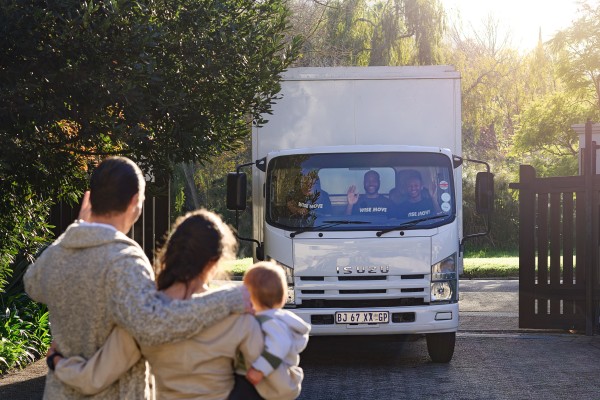
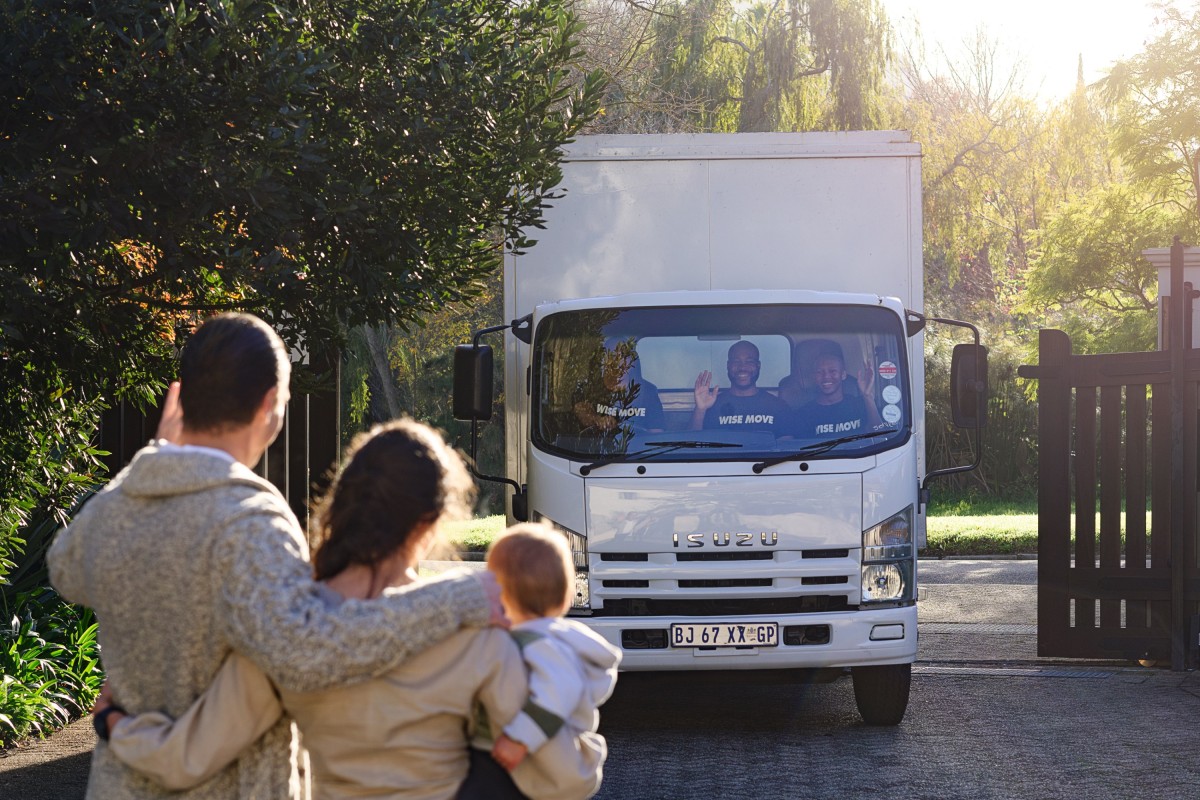

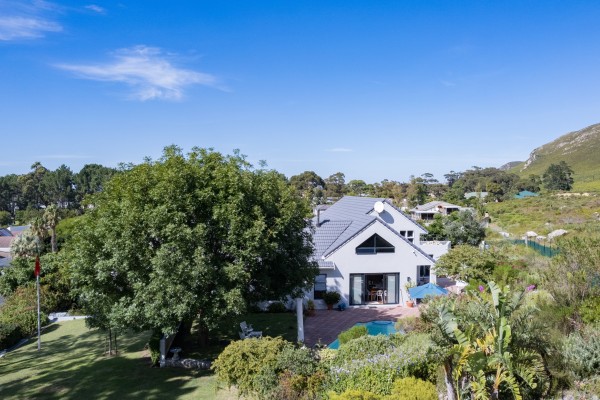

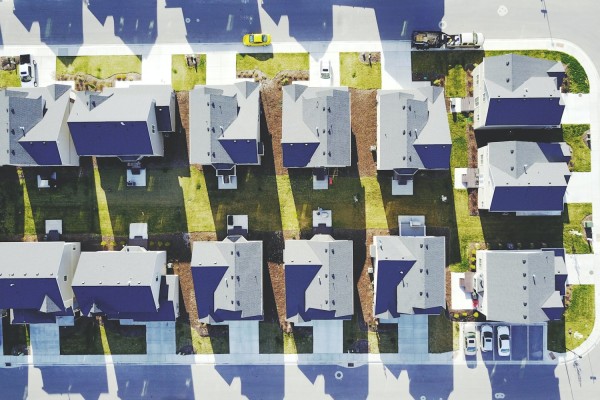
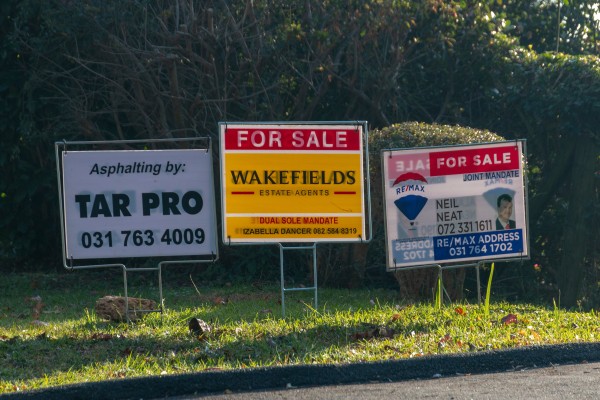



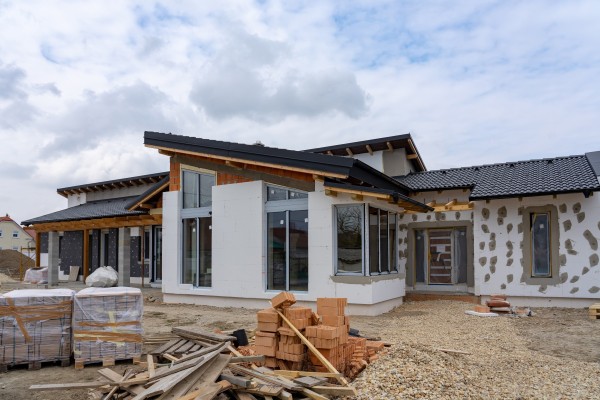
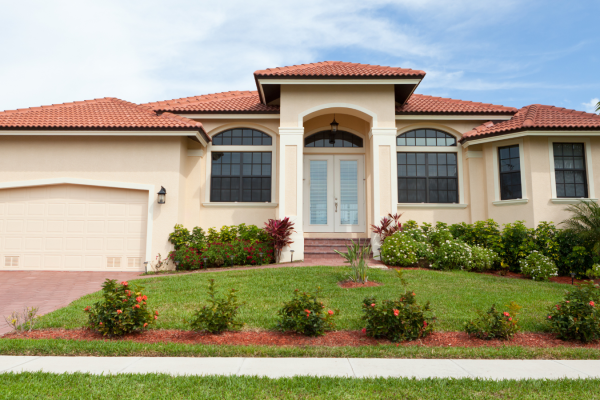







![The Cost of Living in Durban [2025] The Cost of Living in Durban [2025]](https://cdn.wisemove.co.za/image/blog/33d6922f3018eeb43ebed98163e7b2cd.jpeg)



